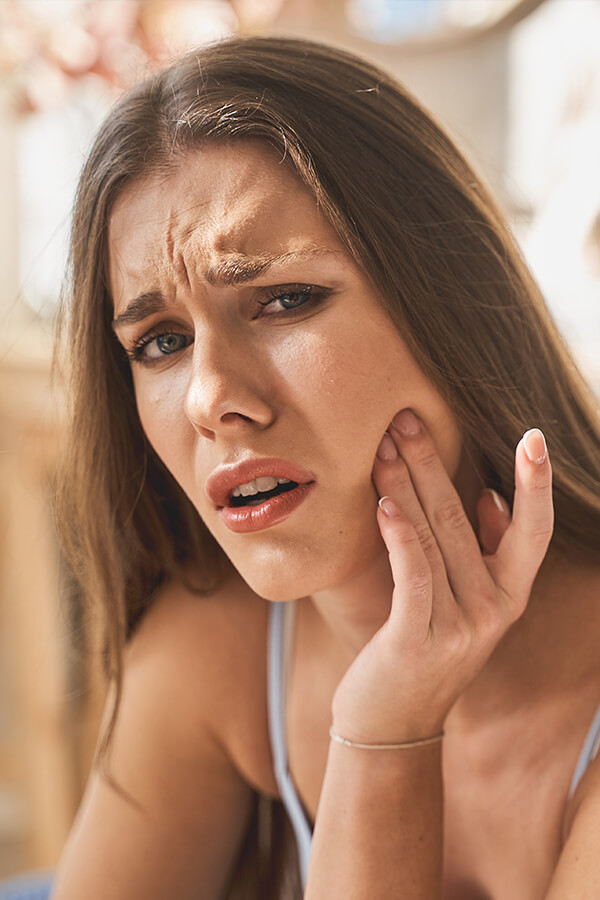Teeth Guards
Treatment for Teeth Grinding and Bruxism
At Southridge Dental, we've got your back!
Sleep bruxism, also known as nocturnal tooth grinding, is the medical term for clenching or teeth grinding during sleep. A type of movement disorder that occurs during sleep, bruxism is a common condition – one survey estimates that 8% of adults grind their teeth at night and a study shows that more than a third of parents report symptoms of bruxism in their children. Occasional bruxism may not be harmful but when it occurs regularly, it may be associated with moderate to severe dental damage, facial pain, and disturbed sleep.
Although the causes of bruxism are unknown, one study links it with such factors as anxiety, stress, alcohol consumption, cigarette smoking, caffeine, sleep apnea, snoring and fatigue. Use of certain medications, including amphetamines, are also associated with episodes of bruxism.
People who have sleep bruxism can also suffer headaches, earaches, jaw pain, jaw joint disorders and damaged teeth. Sleep bruxism may also be linked with other medical conditions and have an impact on quality of life.

Most people probably grind and clench their teeth from time to time. Occasional teeth grinding, medically called bruxism, does not usually cause harm, but when teeth grinding occurs on a regular basis the teeth can be damaged and other oral health complications can arise.
Because grinding often occurs during sleep, most people are unaware that they grind their teeth. However, a dull, constant headache or sore jaw when you wake up is a telltale symptom of bruxism. Many times people learn that they grind their teeth by their loved one who hears the grinding at night.
Why is Teeth Grinding Harmful?
In some cases, chronic teeth grinding can result in a fracturing, loosening, or loss of teeth. The chronic grinding may wear teeth down to stumps. When these events happen, bridges, crowns, root canals, implants, partial dentures, and even complete dentures may be needed.
Not only can severe grinding damage teeth and result in tooth loss, it can also affect your jaws, cause or worsen TMD/TMJ, and even change the appearance of your face.
What Can You Do to Stop Grinding Your Teeth?
Southridge Dental can fit you with a mouthguard to protect your teeth from grinding during sleep.
If stress is causing you to grind your teeth, ask your doctor or dentist about options to reduce your stress. Attending stress counseling, starting an exercise program, seeing a physical therapist, or obtaining a prescription for muscle relaxants are among some of the options that may be offered.
Other tips to help you stop teeth grinding include:
- Avoid or cut back on foods and drinks that contain caffeine, such as colas, chocolate, and coffee.
- Avoid alcohol. Grinding tends to intensify after alcohol consumption.
- Do not chew on pencils or pens or anything that is not food. Avoid chewing gum as it allows your jaw muscles to get more used to clenching and makes you more likely to grind your teeth.
- Train yourself not to clench or grind your teeth. If you notice that you clench or grind during the day, position the tip of your tongue between your teeth. This practice trains your jaw muscles to relax.
- Relax your jaw muscles at night by holding a warm washcloth against your cheek in front of your earlobe.
Have you noticed your partner or a child grinding their teeth at night? If so, contact Southridge Dental right away, and let us help you fix that problem, before it turns into a serious condition.